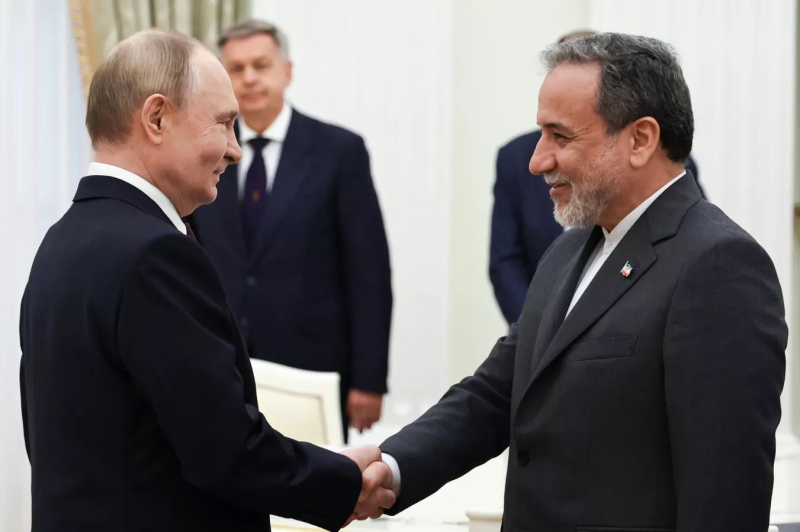Key points
- Russia has stockpiled 13,000 missiles of varying ranges, reducing its dependence on Iran in the war against Ukraine.
- China and North Korea have become key partners for Russia in the supply of military components, in particular ammunition and weapons components.
- Iranian weapons, including drones, have become less important to Russia because Moscow is largely capable of producing and improving the weapons it previously took from Tehran.

Russia no longer seems to need help from Iran to continue waging war against Ukraine. Moscow has stockpiled 13,000 missiles of varying ranges.
This was reported by Channel 24 , citing material from the Financial Times.
Why Russia No Longer Needs Iran for War Against Ukraine
Journalists note that against the backdrop of the ceasefire in the conflict between Israel and Iran, one might think that Russia is concerned about the consequences for its own military campaign against Ukraine. Moscow had to watch as Israel essentially controlled the skies over Tehran and destroyed the country's air defenses, something Moscow failed to do in Ukraine.
In addition to striking nuclear facilities, Israel has damaged Iran's drone and missile production.
Iranian weapons, especially drones, have been valuable to Russia's war effort. Now, having suffered such a serious setback, Tehran will need to rebuild and may not be able to provide the Kremlin with weapons for quite some time, the article says.
Iran provided Russia with much-needed Shahed 136 combat drones and the technology to make them early in the war in Ukraine. Over time, the infamous Shahed (renamed Geran-2 by Russia) became the cornerstone of Russia’s campaign of strikes against the Ukrainian home front.
“Iran has also supported Russia's war in other ways, shipping artillery shells and other munitions across the Caspian Sea. Signaling a desire to deepen their defense ties, Iran and Russia signed a strategic partnership treaty in January,” the reporters write.
Despite this history of cooperation, Iran is unlikely to have much influence on Russia's military efforts after the Israeli and American strikes.
The aggressor country, having received technology, blueprints and training from Iran, has set up mass production of Shahed 136 drones in its own country. Production was launched in the special economic zone “Alabuga”, where the Russians not only copy Iranian models, but also modify them – improving engines, warheads and protection against electronic warfare.
Likewise, Israel's reduction in missile production in Iran would have limited impact.
Russia received a batch of Iranian Fath-360 missiles last fall and has reportedly previously requested other models. But it has not even used the Fath-360s in Ukraine. Ukraine estimates that Russia has stockpiled about 13,000 missiles of varying ranges and can produce up to 200 per month. Moscow does not appear to have an urgent need for Iranian missiles, the article says.
How Russia is currently establishing cooperation with other countries
Journalists note that the Kremlin has also expanded its foreign policy activities, creating new alliances. When it comes to Russia’s needs on the battlefield in Ukraine, dependence on Iran reached its peak a year after the war began, but since then China and North Korea have taken over.
In 2023, North Korea has become a key supplier to the Russian war machine, sending ammunition, missiles and, most recently, people.
When it comes to huge volumes of dual-use goods and weapons components, China is a key player in Russia's defense activities.
“Indeed, as Russia has reduced its reliance on Iran, it has increasingly turned to China for parts. The ongoing construction of a Russian-Chinese logistics complex in Alabuga foreshadows China's growing involvement in drone production in Russia, particularly new models such as the Harpia-A1 and Harpia-3,” the article says.
In the end, the journalists concluded that the conflict between Israel and Iran and the direct involvement of the United States in it was unwelcome news for Russia. It upended Moscow’s strategic calculations in the Middle East and revealed the limits of its power projection. But this war will not force Russia to ease pressure in Ukraine.

